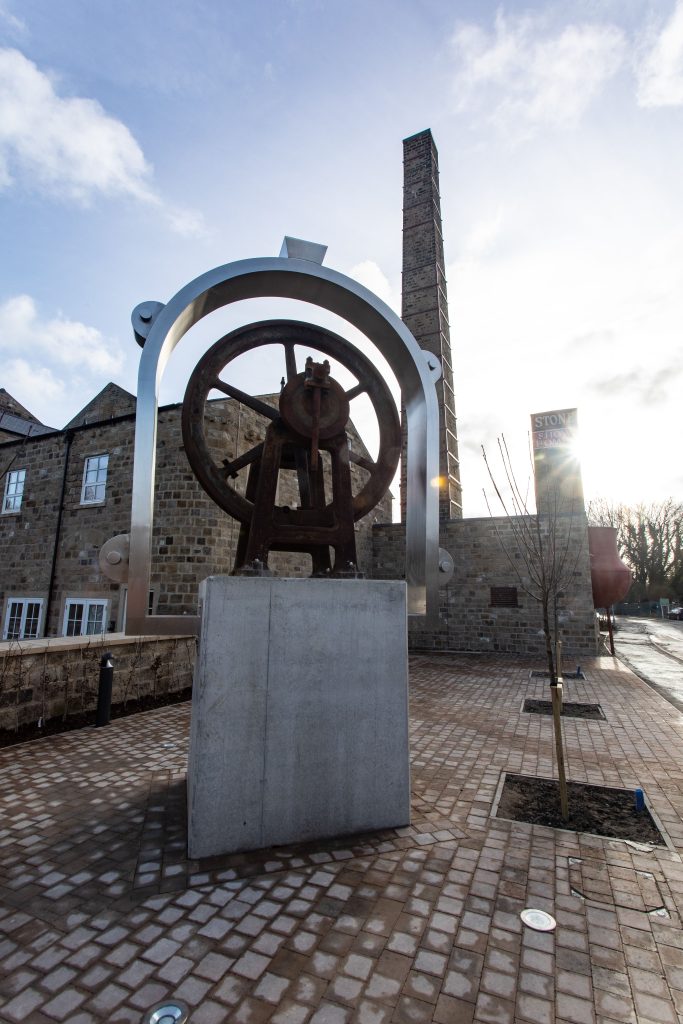
Stonebridge Beck HistoryMarch 23, 2023Textile workings from this site date as far as 1805. At the time the mill was operated by woollen manufacturers Thomas Pawson and John Haley. Expansions took place between 1805 and 1819 and Stonebridge Mills spearheaded the local industrial offering becoming home to a fully integrated steam powered woollen textile mill. From 1828 Stonebridge Mills housed a boiler house, drying house, burling rooms, picking rooms, handle setting rooms, Willey House, 3 cottages, stable and wareshop, dye house raising room and joiners’ shop, wool warehouse, counting house, picking rooms, hot pressing shop, hand spinning room, hand spinning and weaving shops and cloth warehouse. From the 1870s further innovative advancements took place involving the construction of the New Mill in its own independent engine house which powered the New Mill and various weaving sheds. In 1896 the Mills changed hands and were sold to Leeds cloth manufacturer Andrew Mellish. In 1902 a gas generator was installed as well as electric power to all floors of the Mills, reinforcing Stonebridge Mills as a hotbed for innovation. Fred Armitage Lodge & Sons took over the site in 1931 but tragically saw the New Mill building go up in flames as fire took hold in 1936. It was since never rebuilt albeit the water tower still stood tall reaching for the attention of those who could give it new life. The Lodge family were the last owners to undertake textile manufacturing on this site and the water tower was for a long time branded by the Lodge name. Textile manufacturing ceased in 1980 and since, adopted a new use as a trading estate with a mixture of businesses occupying the buildings which increasingly fell into disrepair unable to be properly used or enjoyed. Stonebridge Mills, a much-loved Leeds landmark has been transformed to accommodate a new community anchored within a traditional context by regional heritage development experts, Rushbond PLC. The water tower celebrates a place steeped in history now wearing the badge Stonebridge Mills. As part of the redevelopment, neglected industrial machinery was salvaged. To celebrate its heritage, a public sculpture was commissioned framing the entrance to the site. The work consists of a crucial part of historic machinery, the water pump wheel, framed by a large-scale piece of hand-crafted stainless steel positioned on a concreate plinth. Titled ‘Embrace’ the work is meant to metaphorically embrace one home. Artist Chris Knight aims to represent the repurposing of the buildings and their recasting into another role more relevant to the needs of today and celebratory of life. For further information and to book a viewing: https://www.stonebridgebeck.com/
|



